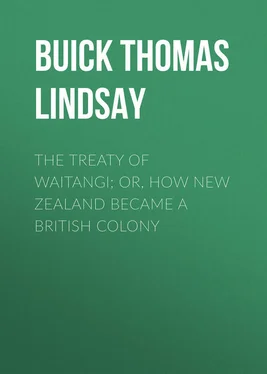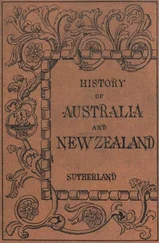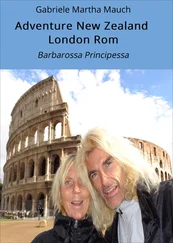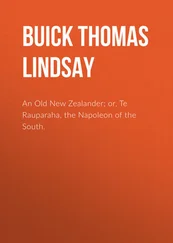Thomas Buick - The Treaty of Waitangi; or, how New Zealand became a British Colony
Здесь есть возможность читать онлайн «Thomas Buick - The Treaty of Waitangi; or, how New Zealand became a British Colony» — ознакомительный отрывок электронной книги совершенно бесплатно, а после прочтения отрывка купить полную версию. В некоторых случаях можно слушать аудио, скачать через торрент в формате fb2 и присутствует краткое содержание. Жанр: foreign_antique, foreign_prose, на английском языке. Описание произведения, (предисловие) а так же отзывы посетителей доступны на портале библиотеки ЛибКат.
- Название:The Treaty of Waitangi; or, how New Zealand became a British Colony
- Автор:
- Жанр:
- Год:неизвестен
- ISBN:нет данных
- Рейтинг книги:5 / 5. Голосов: 1
-
Избранное:Добавить в избранное
- Отзывы:
-
Ваша оценка:
- 100
- 1
- 2
- 3
- 4
- 5
The Treaty of Waitangi; or, how New Zealand became a British Colony: краткое содержание, описание и аннотация
Предлагаем к чтению аннотацию, описание, краткое содержание или предисловие (зависит от того, что написал сам автор книги «The Treaty of Waitangi; or, how New Zealand became a British Colony»). Если вы не нашли необходимую информацию о книге — напишите в комментариях, мы постараемся отыскать её.
The Treaty of Waitangi; or, how New Zealand became a British Colony — читать онлайн ознакомительный отрывок
Ниже представлен текст книги, разбитый по страницам. Система сохранения места последней прочитанной страницы, позволяет с удобством читать онлайн бесплатно книгу «The Treaty of Waitangi; or, how New Zealand became a British Colony», без необходимости каждый раз заново искать на чём Вы остановились. Поставьте закладку, и сможете в любой момент перейти на страницу, на которой закончили чтение.
Интервал:
Закладка:
But apart from the commission of actual outrage there was debauchery of several kinds, and always of a pronounced type. "They lead a most reckless life, keeping grog shops, selling spirituous liquors to both Europeans and natives, living with the native females in a most discreditable way, so that the natives have told me to teach my own countrymen first before I taught them. They have called us a nation of drunkards from their seeing a majority of Europeans of that stamp in New Zealand." Such was the testimony of an erstwhile Missionary, Mr. John Flatt, when giving evidence before the House of Lords regarding the northern portion of the colony; and not less unsatisfactory was the position in the South Island, where the whalers were the preponderating section of the white population.
At both Cloudy Bay and Queen Charlotte Sound there was, in 1837, a considerable white settlement, each man being a law unto himself, except in so far as he was under the dominion of the head man of the station. This at least was the opinion formed by Captain Hobson when visiting those parts in H.M.S. Rattlesnake . In describing the result of his enquiries to Governor Bourke, he dismissed the probability of these settlements being attacked by the natives, because they were so confederated by their employment; but he significantly added: "The only danger they have to apprehend is from themselves, and that is in a great measure neutralised by the contending influences of their own reckless and desperate character."
The Rev. Mr. Stack, then labouring in the north, in writing home to the parent Society, complained bitterly of the unprincipled white men who had escaped from the chain gangs at Sydney, and who had recently shown themselves so desperate that two were seized and taken to Sydney to be tried at the Assizes on a charge of attempted robbery and murder. 5 5 Edward Doyle underwent the extreme penalty of the law at Sydney for a burglary committed at the Bay of Islands on June 18, 1836, the sentence being imposed under a statute of George IV.
Mr. Stack pleaded for the intervention of the British Government, which he hoped would not leave the country at the mercy of the escaped convicts, or the natives to the influence of a commerce carried on with so many circumstances destructive to the moral health of the people, that if unchecked, would effectually do the work of depopulation. "We have no law or justice," wrote Mr. Stack, "no punishment for crime but private revenge."
In the beginning of the year 1840 Kororareka, the settlement at the Bay of Islands which had the greatest right to claim the dignity of a township, contained about three hundred inhabitants of all ages, exclusive of the numerous sailors, whose nightly revels constituted the only interruption to the peace and harmony which generally prevailed. These gentry resorted in great numbers to the native village at the inner anchorage, where the principal chief carried on the lucrative business of grog-selling, besides another of a still more discreditable kind, for the convenience of his reckless customers – French, English, and American. "Here," according to Dr. Jameson, "might be seen the curious spectacle of a still savage chief enriching himself at the expense of individuals who, although belonging to the most civilised and powerful nations in the world, were reduced to a lower degree of barbarism by the influence of their unbridled licentiousness."
Contact with such social degenerates was not calculated to inspire the natives with a high ideal of European morality, nor with a conspicuous example of rectitude; but where the influences destructive of decency and order were less virulent the Missionaries had a more hopeful tale to tell. "The door is opening before us in every direction, and the people are pressing and entreating us to enter. Had we only more help, where we have now a hundred natives under our care, we would soon have a thousand." Such was the report of the Rev. Mr. Turner, one of the Wesleyan Missionaries 6 6 The Wesleyan mission in New Zealand originated in a visit made to this country in the year 1819 by the Rev. Mr. Leigh, a missionary of the Wesleyan Society then stationed in New South Wales. He made the visit for the benefit of his health on the recommendation of the Rev. Mr. Marsden.
at Hokianga, in urging his Society to send more workers to this corner of the human vineyard. The attendance and attention of the natives at Divine worship were regular and fixed, while it is recorded that their responses to the reading of the Litany were particularly devout.
The sincerity of many of these early converts was one of the most remarkable features of the evangelising of the Maori; and the Rev. Dr. Beecham, in giving evidence before the Lords' Committee in 1838, quoted this eloquent passage from one of the letters of the Rev. Mr. Hobbs to illustrate the warmth of Maori piety. "The beauty of the Liturgy, as translated by our brethren at the Bay of Islands into the Native tongue, is most exquisite, and to me hardly loses any of the force of original composition, and, I have no doubt, has been made a great blessing unto many by putting words of prayer into their mouths, and thus teaching them to pray. Many times has my heart gloried within me while repeating the 'Te Deum Laudamus,' and especially that part —
that is —
and hear them respond —
"I have been informed," continued Dr. Beecham, "by those who have witnessed the celebration of public worship in the principal church at Mangungu, that to hear 700 or 800 of the Christian natives correctly and promptly utter the responses, and then sing the praises of the True God, is highly affecting. Another feature of their character is their strict observance of daily social prayer. At dawn of day all the inhabitants of the villages assemble together in the chapel at the sound of the bell, or some piece of metal used as a substitute, to read the scriptures and to pray. The same order is observed in the evening. When the evening approaches the whole of the population moves to the house of God, and close the day with devotions. Their reverence for the Sabbath is remarkable. Those who come from a distance to attend Divine worship at Mangungu do not travel on the Sunday, but on the Saturday, and return on the Monday. They refrain from all work on the Lord's Day. So strict are their views on the sanctity of the Sabbath they do not even prepare their food on that day. The arrival of a vessel is always a matter of considerable excitement to the natives of New Zealand, but if a vessel arrives on the Sunday no stir is made."
It would be difficult to find any description quite so touching concerning the religious observances of the Pakehas , whose irreverence more than once roused the righteous indignation of the Rev. Mr. Marsden.
Although the British authorities had as yet taken no decisive step towards acquiring sovereignty in New Zealand, it cannot be said that the state of society in the country had entirely escaped their notice. Especially were the successive Governors of New South Wales vigilant in keeping Ministers posted as to passing events. Many must have been their anxious moments, for they being the nearest representatives of the Crown were naturally most solicitous for the conduct and fate of their countrymen. As far back as 1814 Governor Macquarie had declared New Zealand to be a part of that colony, and it was thought that the jurisdiction of the Supreme Court had also been extended to this country. These proceedings were, however, almost a nullity, for had they been formal and constitutional – which they were not – the practical difficulties in the way of bringing offenders to justice were so great that the attempt was only made in a few isolated and extreme instances.
Читать дальшеИнтервал:
Закладка:
Похожие книги на «The Treaty of Waitangi; or, how New Zealand became a British Colony»
Представляем Вашему вниманию похожие книги на «The Treaty of Waitangi; or, how New Zealand became a British Colony» списком для выбора. Мы отобрали схожую по названию и смыслу литературу в надежде предоставить читателям больше вариантов отыскать новые, интересные, ещё непрочитанные произведения.
Обсуждение, отзывы о книге «The Treaty of Waitangi; or, how New Zealand became a British Colony» и просто собственные мнения читателей. Оставьте ваши комментарии, напишите, что Вы думаете о произведении, его смысле или главных героях. Укажите что конкретно понравилось, а что нет, и почему Вы так считаете.












